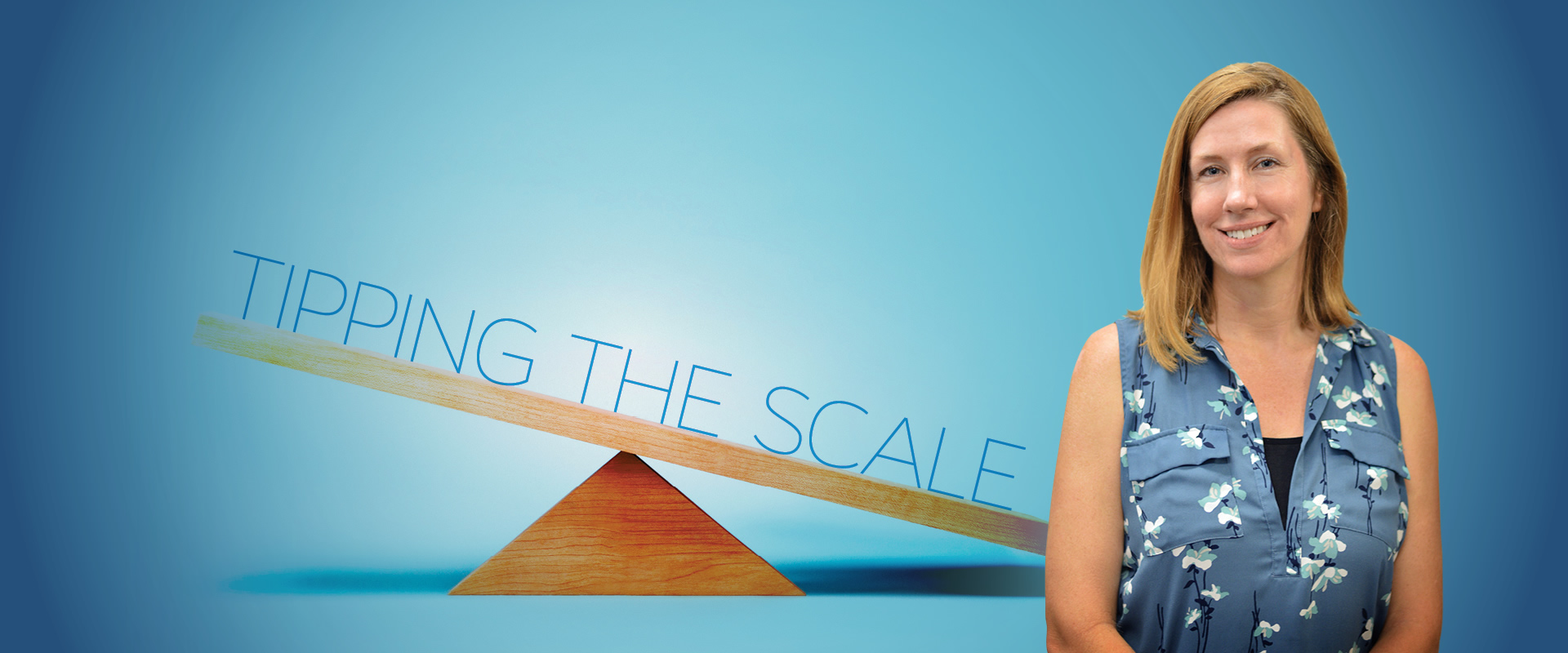 HHP - Update me in site_config > General Configuration
HHP - Update me in site_config > General Configuration

For many Americans, obesity is a life-long struggle. According to the National Institutes of Health, more than one-third of all Americans suffer from obesity, and another one-third are overweight. To fight this crisis, the American Heart Association and the United States Preventive Services Task Force recommend that adults with obesity join behavioral weight-loss treatments.
Unfortunately, even with these recommendations, adult obesity rates continue to rise in the United States. Although they are widely available, any sort of weight-loss intervention is being tried by only 10 percent of Americans. But researchers at the College of Health & Human Performance have experimented with a tool that could help break down treatment barriers and steer individuals toward a healthy weight.
Megan McVay, Ph.D., assistant professor in the Department of Health Education and Behavior,
developed a web-based intervention that can encourage adults to seek out weight-loss treatments.
Prior to arriving at UF, Dr. McVay worked at a chronic pain clinic. She noticed that patients who suffer from obesity often did not try to lose weight because they were not aware of the tools that were available.
“In their minds, the cons outweigh the pros, and this can lead to completely avoiding treatments,” McVay said. “We wanted to be able to make people aware of the options available to them and clear any misconceptions towards weight loss.”
McVay and her team created “Your Wellness Prescription,” a mobilization tool for helping patients break down common barriers to seeking out weight-loss treatments. Administered in a pilot study, the tool asked patients questions about their experience with several weight-loss topics and tailored feedback to encourage patients to start treatment themselves.
In the pilot study, McVay and her team gave a brief web-based assessment. After responding to a series of interactive modules, patients received a personalized weight-loss plan and information on how available treatments could suit their needs.
The program emphasized that there are many choices of weight-loss interventions available to patients, McVay said. In addition to giving participants the opportunity to enroll once the assessment was completed, patients were even offered free access to popular weight loss treatments like WW (Weight Watchers) and Jenny Craig for four months.
Key components of the tool included food, exercise and program suggestions to encourage participants to enroll with one of the offered treatments. According to McVay, certain barriers to weight loss can prevent individuals from normally seeking out weight-loss programs. Not knowing how to cook, a lack of money or even food cravings can discourage patients from initiating treatments.
“Participants found our tool to be a source of motivation,” McVay said. “By personalizing the intervention, we allowed them to work through these pros and cons to reach their own decision on if they should enroll.”
Patients rated the tool as easy to use and informative, McVay said. Not only did the majority of participants who used the intervention continue to complete a follow-up assessment, but it also convinced patients to seek out their program options. According to McVay, weight-loss treatment was initiated by nearly two-thirds of participants who used the mobilization tool. If used in addition to regular visits to a health care provider, the intervention shows huge potential as a new, cost-effective way to approach weight loss.
“Our aim was to help others see the value in programs they could select to reach their weight loss goals,” McVay said. “People often don’t understand the benefits of weight-loss tools. With this approach, we may soon see an increase in both treatment initiation and weight loss from patients themselves.”
Like most research projects, McVay and her team’s research into weight-loss interventions is just beginning. Continued investigation could lead to a revolution in how physicians address the obesity crisis nationwide.
read more >>